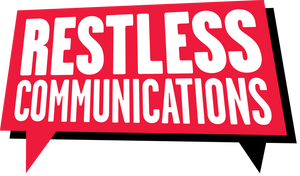It used to take days or weeks for organisations to lose their reputation if they handled something badly. Now it’s more like hours.
By the time they bring in crisis management experts, it’s often much too late. The damage is done.
Prevention is always better than cure. We work with clients to ensure they are well prepared so they can deal with incidents, issues and crises effectively. And fast.
We’ve been training public relations teams in how to write crisis comms and crisis response plans for more 20 years.
Ten years ago we set up some of the first social keyword tracking tools to look for spikes in negative conversations for clients including Nintendo and the BBC.
Even then we understood the importance of how to spot fake news and effective social listening. Accurate information is vital when it comes to helping CEOs and comms teams respond effectively to issues and crises.
As well as helping clients establish social monitoring and escalation processes for issues and crises, we also create tailored crisis communications training programmes for teams ranging from 5 to 500.
And we provide hands-on support for clients as required. From providing senior external counsel , through to secondeing experts onto teams to provide hands-on support as an incident, issue or crisis unfolds.
How to write a crisis communications plan
We have significant experience writing crisis comms strategies from scratch and reviewing and updating existing documents. Every plan is tailored to clients' requirements but we generally follow the 'four stage' model we have developed over the last 20 years.
Our ‘four stage’ approach to crisis management and crisis communications has since been adopted by multinational companies and training providers like Econsultancy and Brandwatch who feature it in their white papers and advice.
1) Identification
- What has happened?
- How do we know?
- What can we learn from social media?
- Is our social listening service fast enough?
2) Evaluation
- How serious is the issue to our business?
- How do we classify it - an incident, an issue or a crisis?
- Are the implications financial or repetitional, or both?
- Is the issue local, national or global?
- How serious is the issue for our reputation?
3) Escalation
- Who should be in the crisis comms team?
- Who we need to alert and involve?
- How can we get them involved and up to speed very fast?
4) Response
- What are we doing about it?
- What are we saying?
- Who is co-ordinating our crisis response messaging?
- And who else do we need to bring in the communications team?
- What communication channels should we use to reach all of our stakeholders?
Crisis Communications Training
We develop bespoke training for Boards and crisis communications teams, ranging from reactive media relations training, through to 'table-top' exercises, and full-day immersive sessions.
Our training typically involves developing complex and realistic scenarios which then play out in real-time. We work closely with Business Continuity Managers as well as Directors of Communications and Heads of Press and PR.
We regularly work for clients in sectors where insurers require organisations to test and refine their crisis communication plans every year or every six months.
Immersive Crisis Communications Training
Our immersive crisis management training sessions overlay social media complaints with media calls and stakeholder enquiries. We write the equivalent of film or game script which deliberately leaves space to adapt to how organisations respond.
In recent years we have worked for global brands across sectors including hospitality, travel, education, finance, gaming and media.
Our experience developing realistic scenarios means we can put diverse teams under exactly the sorts of pressure they need to rehearse. It means that public relations teams and their operational colleagues all learn in real time that how they behave influences the way a situation unfolds.
We test situational crisis communication plans so we can review how organisations perform. And how they can improve.
That review typically includes the reviewing current best practice in crisis communication theory, alongside case studies and recent examples of effective crisis comms in action. We learn from what works elsewhere, and we coach the crisis team to implement their crisis management plan as effectively as possible in future.





